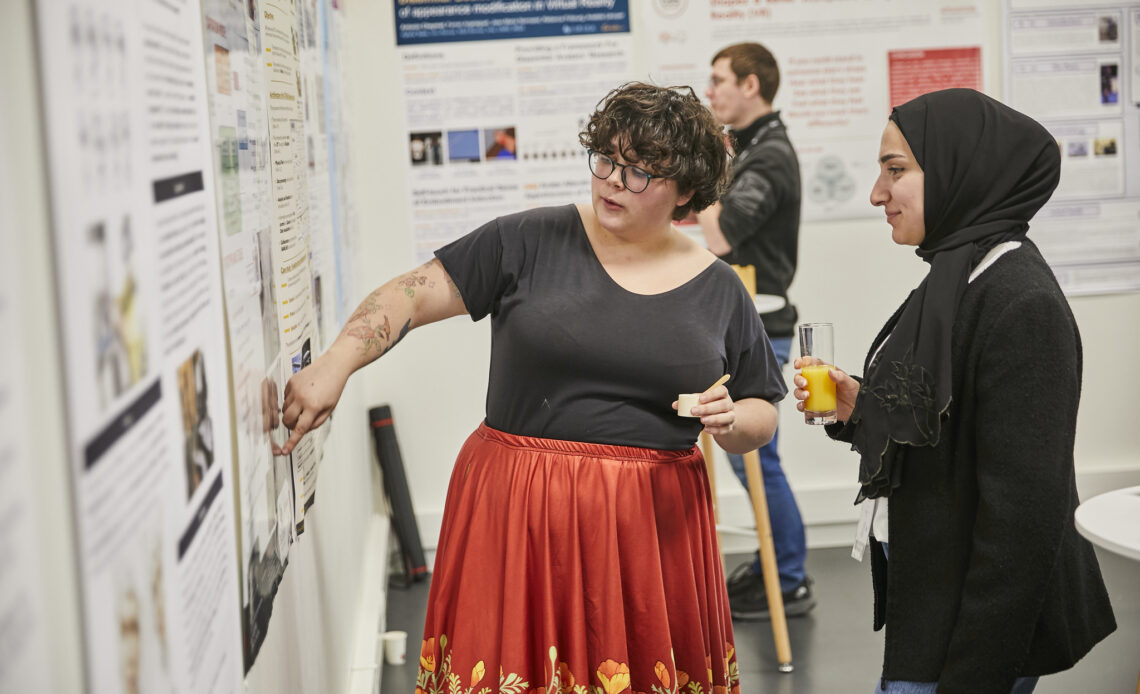
The Doctoriales put the spotlight on young researchers in the field of VR/AR.
Crédits photos : Prisma / Laval Virtual
With the goal of connecting XR professionals with scientific community, Laval Virtual is organizing the Doctoriales. In plenary session format, young PhD students come and present their thesis in the hope of getting feedback on their research work, as well as creating career opportunities. This day of conferences is divided into two sessions on Thursday afternoon, April 10, and the morning of Friday, April 11, as part of Laval Virtual, Europe’s biggest VR/AR event.
When VR/AR becomes the subject of scientific research
Virtual reality and immersive technologies have become objects of research. Many scientists write papers on behavior in virtual environments, presence and many other notions of the field. The MIT – Massachusetts Institute of Technology – even created a scientific academic journal on these subjects: PRESENCE: Virtual and Augmented Reality. As Europe’s first VR/AR event, Laval Virtual wanted to give a voice to these scientists who focus their work on technologies, through the Doctoriales.
The Doctoriales is an opportunity for PhD students, currently working on their thesis, to present their research work. During the sessions, they can meet experienced researchers, research laboratories and even VR/AR professionals. It’s an opportunity for these young researchers to get concrete feedback on their work and to develop contacts within the XR community. The Doctoriales are open to European PhD students, even if the majority are French, as Simon Richir, Professor at Arts & Métiers Laval Institute and Coordinator of these sessions, points out. “It gave us an idea of the extent of XR research in France.”
XR community meets young researchers
The Doctoriales are divided into two types of session: the “conferences” sessions and the “posters” sessions. During the first one, the doctoral student has fifteen minutes to make a presentation and can answer questions from the audience. During the second type of session, the young researcher shows a scientific poster (which is an illustrated summary of the research conducted) and explains his work to the public who come to meet him. It’s a slightly more intimate format, allowing real exchanges between scientists and XR professionals.
To participate, PhD students must have a thesis on immersive technologies in progress or defended within the last year. Subjects, on the other hand, are free and therefore very diverse. “Last year, we had very technical theses, for example on force feedback, and theses on human sciences, for example on the feeling of presence in virtual environments”, explains Simon Richir.
In fact, Laval Virtual drew very positive conclusions from the first edition, which took place in 2024. “The doctoral students were very pleased with this event and promised to come back every year!”. As a bonus, the young researchers who come to present their works have also the opportunity to visit the exhibition. They can meet XR companies and professionals, and why not create career opportunities. It’s also a wonderful way of taking stock of what exists in the immersive technologies field.


